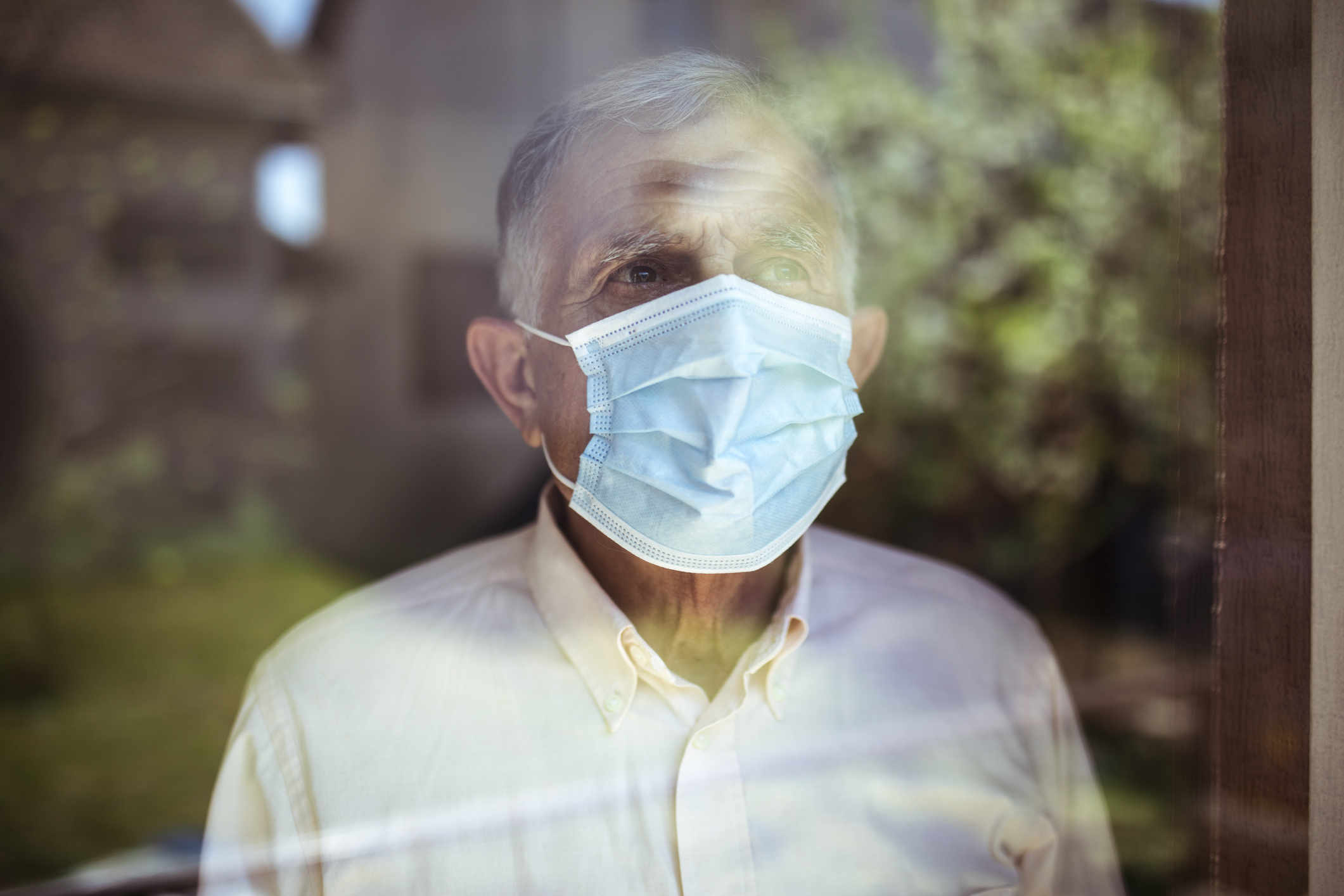Palm Beach Soul: Loneliness

Rabbi Michael Resnick of Temple Emanu-El of Palm Beach and Rev. Dr. Bob Dannals of The Episcopal Church of Bethesda-by-the-Sea talk about coping with loneliness, and the benefits of solitude.
Rabbi Michael Resnick
Temple Emanu-El of Palm Beach
The surest sign of age is loneliness …
Being alone is not always a problem. In fact, there are many times where solitude is a pleasure and a consolation.
But there is a huge difference between solitude and loneliness. Loneliness doesn’t require solitude. It can be felt in the middle of a crowded room, while walking down a busy avenue, or in the quiet of one’s home with one’s partner in the same room. Loneliness is not of the body but of the soul. And it has the power to kill both joy and hope.
There is a 1,500-year-old story in the Babylonian Talmud (Taanit 23a, to be exact) about a certain man named Honi, who — like a Jewish Rip Van Winkle — awakens one morning 70 years in the future.
For him, it’s a different world, a world in which he feels completely isolated and disconnected. He is cut off from his former friends, his family and the human connections that long ago gave his life meaning. And it is devastating to his emotional health.
The Talmud concludes the story with a dramatic flourish, perhaps overly dramatic, saying; “Chev’ruta oMi’tuta — either companionship or death.”
The point, of course, that the Talmud is making is that loneliness is corrosive. People are social, tribal creatures. We need, in fact we crave, meaningful contact with others. Perhaps that is why God searches for a partner for Adam immediately after he is created. It’s one of the very first things we hear about human beings — we should not be alone!
So here we are two years into this pandemic and it is clear that COVID is not the only danger that confronts us. Loneliness and isolation are afflictions, as well. So many of us, especially the elderly, have been cut off from family, friends and the normal pulse of life for far too long.
But all of this is stating the obvious. Fortunately, the solution is also obvious.
Each of us must make an effort to shine light into the darkness that loneliness has brought to so many of those around us. I am certain that a quick perusal of the contact list in our iPhones will provide numerous prospects of those who might have their day significantly brightened as a result of a friendly phone call or visit from us.
Little acts of kindness are never little, especially in these scary, lonely times. But we can be part of the solution if we choose
Rev. Dr. Bob Dannals
Episcopal Church of Bethesda-by-the-Sea
Reconnecting in a lonely world …
“All the lonely people,” The Beatles sang in the late 1960s, “Where do they all come from? … Where do they all belong?”
We’re told by many social scientists that we live in a world suffering from a loneliness epidemic. In the wake of a global pandemic, isolation and distance seem to be the by-words of people and groups being cut off from each other. In the face of these conditions, social workers, therapists, pets and, of course, the internet, all promise forms of belonging and community for the lonely. But these options and more seem destined to leave certain basic human yearnings unaddressed. For many people, the strongest forms of community are still the traditional ones — the kind forged by shared genes, shared stories, shared geography, shared interests and shared faith.
In the classic Rogers and Hammerstein musical Carousel, the whole community comforts the young bride Julie when she is suddenly widowed, and their song of comfort begins, “Tho’ your dreams be tossed and blown, walk on, walk on. With hope in your heart, you’ll never walk alone, no you’ll never walk alone.”
That song has become an anthem. During the original 1945 Broadway run, many in the audiences who had a husband, a brother, a son or a lover fighting overseas, found solace in its meaning and its message. It’s been sung since in telethons for cures, human rights causes, cancer treatment centers, even in British soccer stadiums.
Why? Because it’s true. And we in faith communities can show that truth to one another and model it for the world that is filled with isolated, hurting, lonely people who need to know it.
Comfort, a word whose origins mean “with strength,” is a central function of communities of faith. Knowing you’re not alone gives one strength. During this “COVID culture” and these isolating and socially distant days, call upon the good shepherds around you, people dedicated to staying in touch, and reach out daily to someone near you. And be a “good shepherd” for someone. Take the extra time to write a note, make a call, invite someone into your circle of friendship and support.



